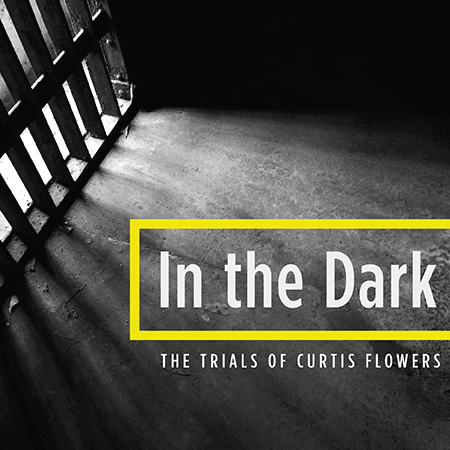Podcast In the Dark S2: Curtis Flowers Finds Light!
The injustice has been corrected, finally. And I won’t need to eat my shoe.
The injustice has been corrected, finally! And I won’t need to eat my shoe.
Episode 19 of this series buttons up all that this podcast did for not only investigative journalism, podcasts and new media, but also, more importantly, for Curtis Flowers.
I’m unashamed to say I welled up at this news.
Charges against Curtis Flowers are dropped
At long last, Curtis Flowers is free. The Mississippi man endured nearly 23 years behind bars, six trials, four death…www.apmreports.org
I wrote this review of the In the Dark podcast in June of 2018, where I said I would eat my shoe if Curtis Flowers were guilty:
“Journalism is a tough racket. It always has been. It’s been made even harder with the digital world’s explosion, the never-ending media conglomeration, and political ideology’s polarization.
Today’s news appears to exist in two worlds. One serves as propaganda: the other, a weak platform for resistance.
Neither is ideal.
Neither is representative.
Because traditional news media has become more interested in distorting truths, in money, and in ratings, finding objective or well-informed news is challenging — on the best days. These are not the best days.
Finding truth in two-minute segments on television or attempting to extrapolate any significance from the braying panels on cable news networks is a Sisyphean task.
Unwilling to be sent out to pasture, investigative journalism has had to find a new home. Enter podcasts, the last bastion of long form investigative journalism.
Because the volume of podcasts is overwhelming, how do you find one that’s good? I can help.
The 2016 Peabody Award-winning podcast In the Dark, produced by American Public Media and narrated by Madeline Baran, is an excellent example of important and powerful investigative journalism.
The award-winning first season investigated the abduction of Jacob Wetterling [equally as impactful as season two would be].
Season two examines the trials (all six of them) of Curtis Flowers.
Flowers has been tried SIX TIMES, by the SAME prosecutor, District Attorney Doug Evans, for the SAME crime. That is literally, a record.
Curtis Flowers is black.
Doug Evans is white.
Oh, and all six cases were capital cases.
Curtis Flowers was convicted of murdering four people in Winona, Mississippi, in July of 1996. The initial trial resulted in a guilty verdict. That verdict was overturned due to prosecutorial misconduct that violated Flowers’s rights.
The ensuing trials resulted in two more convictions. Each overturned by the Mississippi Supreme Court. Two more mistrials, and the final attempt, in 2010 returned a guilty verdict; by a majority white jury.
A mostly-white jury hardly seems to be a “jury of peers” when a defendant is a black man.
They imposed the death sentence …yet again.
As I listened to the Flowers story unfold, I was gobsmacked (I now realize was naivete) that this sort of malfeasance still existed.
As hard as it may be to think, perhaps I’m just not cynical enough?!
There are jailhouse confessions, flagrant witness tampering, witnesses recanting, prosecutorial absolution for felonies in exchange for blatant perjury.
Most damning of all takes place in episode seven — unsettling data about the racial makeup of the juries in each trial. To call it biased is an egregious understatement.
Episode seven would play a role in the Supreme Court decision in 2019.
To recap:
1st Trial — Convicted. Overturned due to prosecutorial misconduct that violated Flowers’s rights.
2nd Trial — Convicted. Overturned by the Mississippi Supreme Court.
3rd Trial — Convicted. Overturned by the Mississippi Supreme Court.
4th Trial — Mistrial
5th Trial — Mistrial
6th Trial — Convicted. [In June of 2019, the Supreme Court of the United States heard the Curtis Flowers case and in a 7–2 decision, reversed his conviction. SCOTUS had determined that the prosecutors excluded African American’s from the jury.]
In the era of media blowhards and media conglomeration, investigative journalism is essential and relevant, perhaps even more so. However, you wouldn’t know that if you relied only on network or cable news.
As what remains of our democracy hangs in the balance, as our attention span shrinks and as our tolerance for deceit and lying expands, investigative journalism is more important today than it’s ever been.
The truth exists.
Seek it out.
In the Dark, season two, binge online or download wherever you get podcasts.”




